The Steampunk Roadster
Update: car has been sold!
In a few short months The Steampunk Workshop will celebrate it’s 10th birthday! I can barely believe that it’s been ten whole years since this whole “steampunk” thing blew up on the internets. It’s been a lot of fun for me, but I also feel like we’re approaching the end of an era. So, I have decide to glue a gear on it and declare this Jake von Slatt’s Last Steampunk Project!
Now, that is not to say that I will never do another project in a steampunk style; but this is the last project I plan to do where I take something and attempt to steampunkify(TM) it. So perhaps I should say this is my last steampunk mod.
This project started in December of 2007 when I decided that I wanted to build a steam powered vehicle and that a kit car from the 1970’s would be the perfect platform on which to build it. I went on eBay and within a short period of time found exactly what I imagined would be the perfect car. I also started researching steam engines for automotive use and learning about boilers and control systems. It didn’t take long to come to the realization that the amount of design, experimentation, and fabrication necessary to construct a function steam powerplant was beyond what I could do while I still had a day job. Thus, I decide to resurrect the original VW engine and drive train and make a fun and easy to operate and maintain roadster.
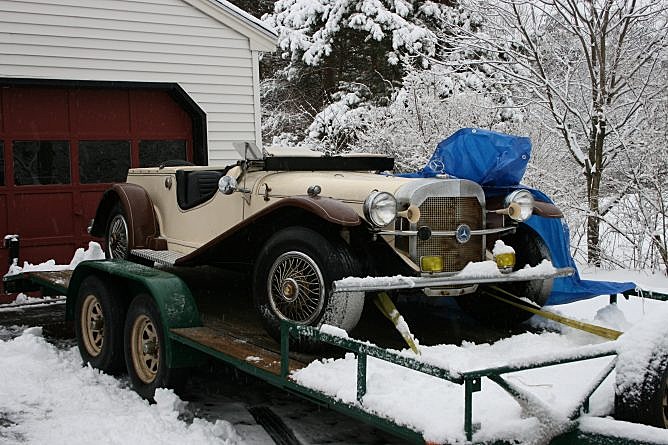 The car came to me in pretty rough shape. The engine ran enough to get the car on the trailer but would not idle and one of the wheels would not turn at all. In addition the electrical system was a complete mess. The interior was also moldy and ruined by a long period in storage–much of it I believe must have been outside in the elements.
The car came to me in pretty rough shape. The engine ran enough to get the car on the trailer but would not idle and one of the wheels would not turn at all. In addition the electrical system was a complete mess. The interior was also moldy and ruined by a long period in storage–much of it I believe must have been outside in the elements.
I stripped the interior and yanked out all of the wiring. The mechanicals were all stock VW (this car is build on a 1971 VW Beetle chassis) so I ordered a carburetor rebuild kit, 4 brake drums and 4 complete brake hardware kits and shoes.
While waiting for these component to arrive I began the re-wiring of the entire car. I used classic bread-boarding technique for electro-mechanical equipment and put most of the key connections on the back of a new cherry dashboard.
Here’s a video of the completed car including a ride around the neighborhood to The Spark from The Nathaniel Johnstone Band‘s latest album!
These kit cars were fiberglass bodies bolted on top of a VW Beetle chassis. This is a particularly early example from Tiffany Motor Cars in Florida, you’ll note it has no doors which is pretty rare for these Mercedes Gazelle replicars. It also has no back seat and an over-heating problem, but more on that later.
I painted the car with black lacquer paint after filing some holes and gouges in the fiberglass and sanding the body smooth. This was my first time painting an entire car and I am pretty pleased with the result. The finish has never been sanded or rubbed out so it could be improved significantly with a little elbow grease.
After the base of the car was painted I started working on accessories. The electric horns that came with the car were chrome and white plastic with a “marine” look that was not appropriate for the vehicle. I removed the plastic bits and re-configured them with a pair of old trumpets my sister had rescued from the trash.
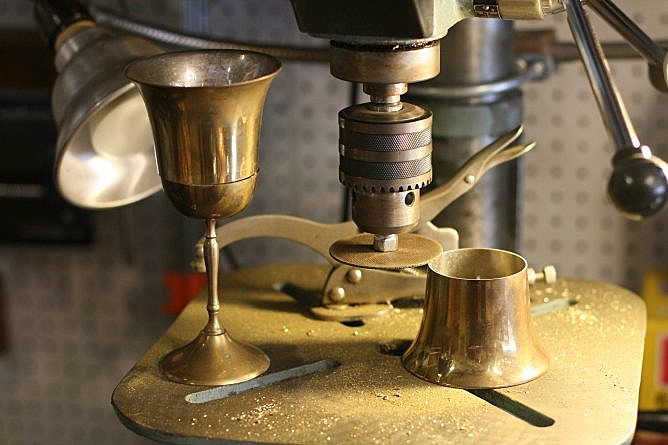
About this time I was contacted by the produces of the PBS show Make:Television. They were interested in doing a “steampunk” episode and wondered if I had a “complete” project that I could do for them from start to finish and I suggested the coach lamps that I intended to build from a set of brass wine goblets I had found at the town dump. Some week later a film crew arrived and we spent 5 days doing just that. Of all of the television I’ve done to date; I think this is still my favorite segment.
The car has also appeared on the Steampunk episode of WCVB’s Chronicle and is immortalized in cartoon form in the opening sequence for SPACE TV’s Fanboy Confessional.
Here’s a shot of one of the completed coach lamps. I decided early on that I was not going to put a clear lacquer finish on any of the brass fixtures that I built for the car. I love the rich dark look of aged brass and polished brass requires constant upkeep. Simply stated; life is too short to polish brass.
The radiator shell that was provided with these cars was, well, ugly. The grill is a cheesy stamped steel grate and the shell’s proportions were inelegant.
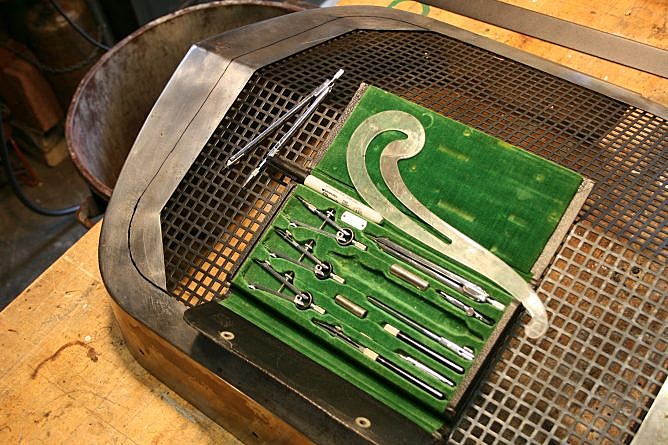
I trimmed the shell opening to have a better line and welded up a new grill from steel rod.
The chrome on the grill was in rough shape so I chose to lacquer it like the rest of the car and give it a gold filigree finish.
The VW engine turned out to be in pretty good shape. I did replace the distributor with a Pertronix electronic points model and I rebuilt the carburetor . The carburetor still has some issues (hesitation on acceleration) due to internal corrosion so I suspect the new owner will want to upgrade or replace the original 34PICT-3 unit.
These kit cars often had cooling problems. Builders rarely included the recommended “skirt” needed to seal the top of the engine from the hot air expelled from the bottom and this recirculating air would cause then to run hot. To fix the issue on this car I installed a bulkhead and duct to the cooling air intake to direct air from the side mounted grills directly to the engine. You can drive this car on the highway all day and it will not overheat. The video about has more information on these modifications.
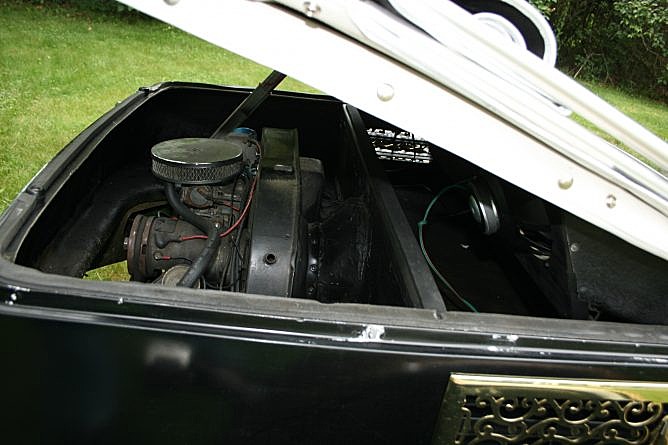
I decorated the fenders with the same filigree technique I used on the radiator. This is an old hot rodder’s trick. First you mask off the area and tape some lace fabric over it. Then you shoot a contrasting color through the lace, in this case gold, and then clear coat the whole thing after peeling the lace off.
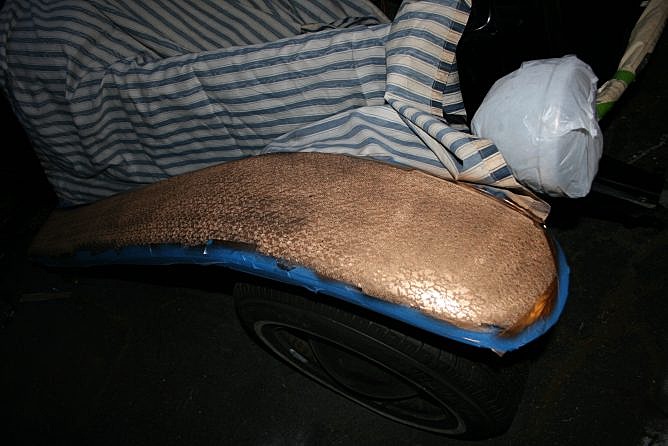 I really like how this turned out and it’s perfect for the car.
I really like how this turned out and it’s perfect for the car.
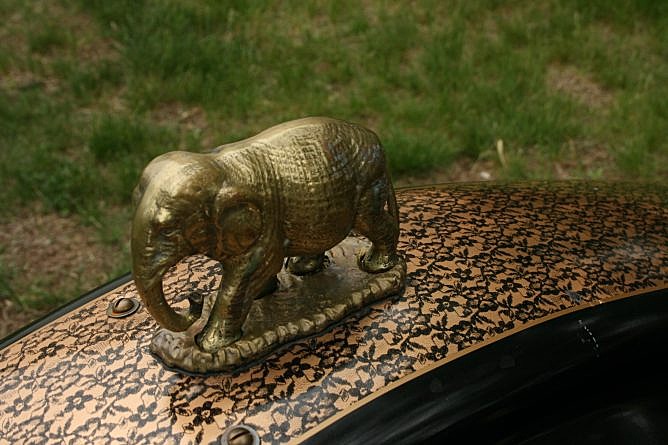 The original top was pretty torn up, but I was able to find a NOS replacement on eBay for not too much money.
The original top was pretty torn up, but I was able to find a NOS replacement on eBay for not too much money.
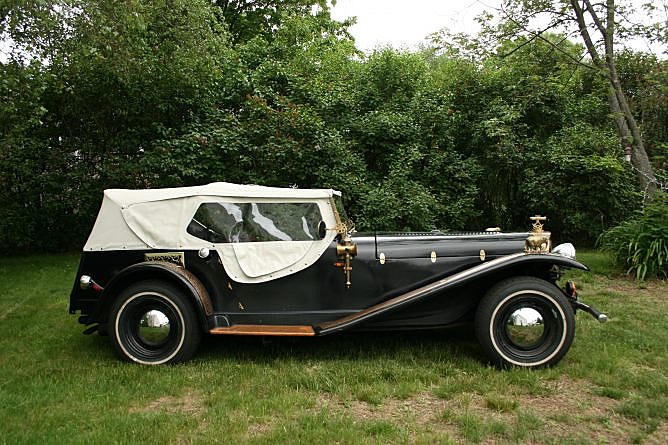
The car is actually quite drive-able in the rain. The top keeps most of the water out, the only real issue is the difficulty buttoning up the top once you’ve climbed in, this requires a certain amount of flexibility.
I lucked out and was able to get the Massachusetts plates “STMPNK” for the roadster. Unfortunately, Massachusetts will not let me transfer these plates so if a future Mass owner wants “STMPNK” it will be a bit of a crap shoot once I give them up.
The car originally had turn signals on the fenders, these were in rough shape and the bulb sockets were corroded beyond repair. For a while I had the rear view mirrors mounted on the fenders like some old British roadsters, but they proved to be not very usable. Eventually I just started searching eBay for “brass pair” and when these elephants popped up I knew they’d be perfect. To mount them on the fenders I modeled some bees wax to fit the fender curve and the elephants feet and then cast these bases in brass.
The hood ornament is a brass alidade my parents gave me on Xmas.
Here a shot of the coach lamp in operation.
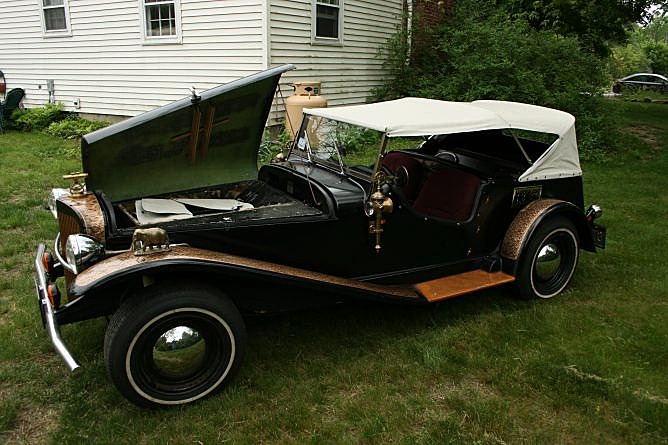 I think that if I were going to keep the roadster, I would transform the front trunk into a sumptuous and fully stocked bar! In fact that would be a great idea for someone who wanted to take this vehicle to Burning Man!
I think that if I were going to keep the roadster, I would transform the front trunk into a sumptuous and fully stocked bar! In fact that would be a great idea for someone who wanted to take this vehicle to Burning Man!
All of the gauges work including the head temperature gauge unique to VW’s.
The car has a 4X52 Watt Sony sound system with 4 Kenwood speakers, it sounds good and it is loud enough to be heard over the wind noise.
I’ve had a lot of fun with this car and a lot of fun steampunkifing(TM) it! Over the years many, many folks have had their pictures taken with it at events and I had the absolute joy of driving two good friends to the altar to get married just a couple of weeks ago. But its time for the roadster to find it’s new owner and whoever that may be I hope they will have even more fun that I!
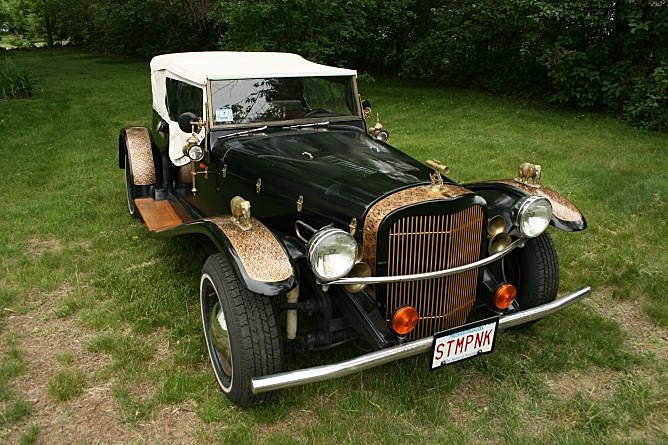
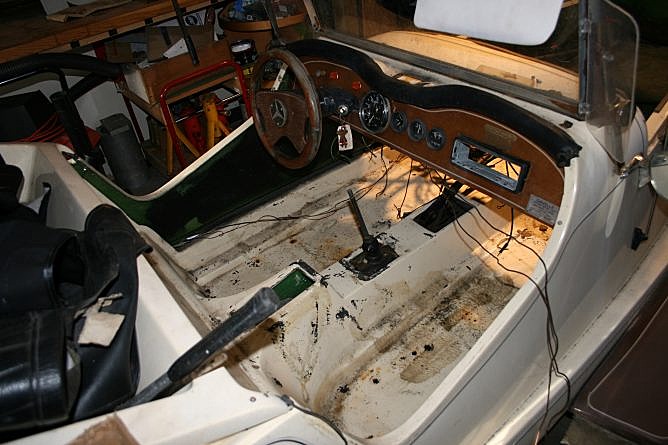
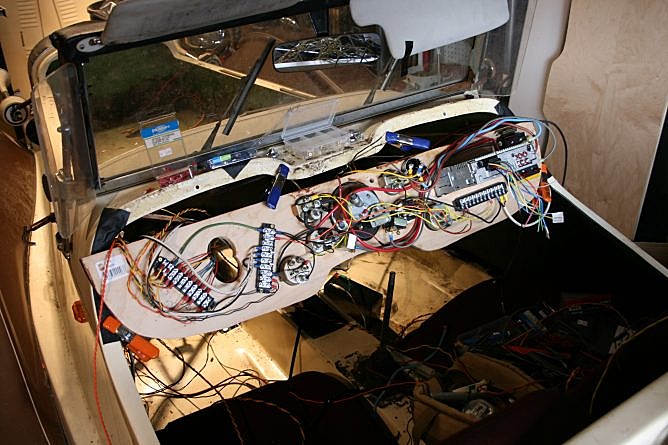
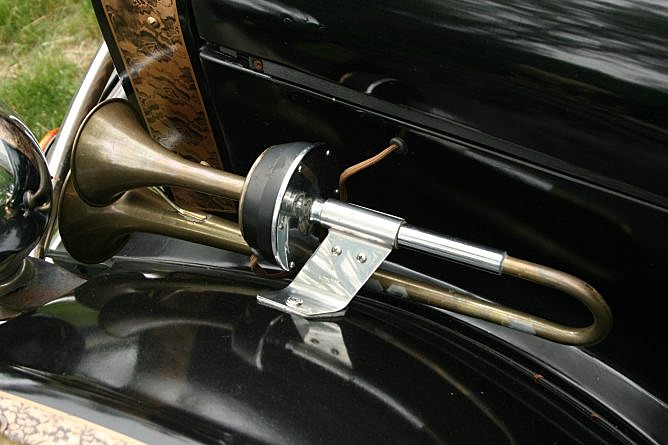
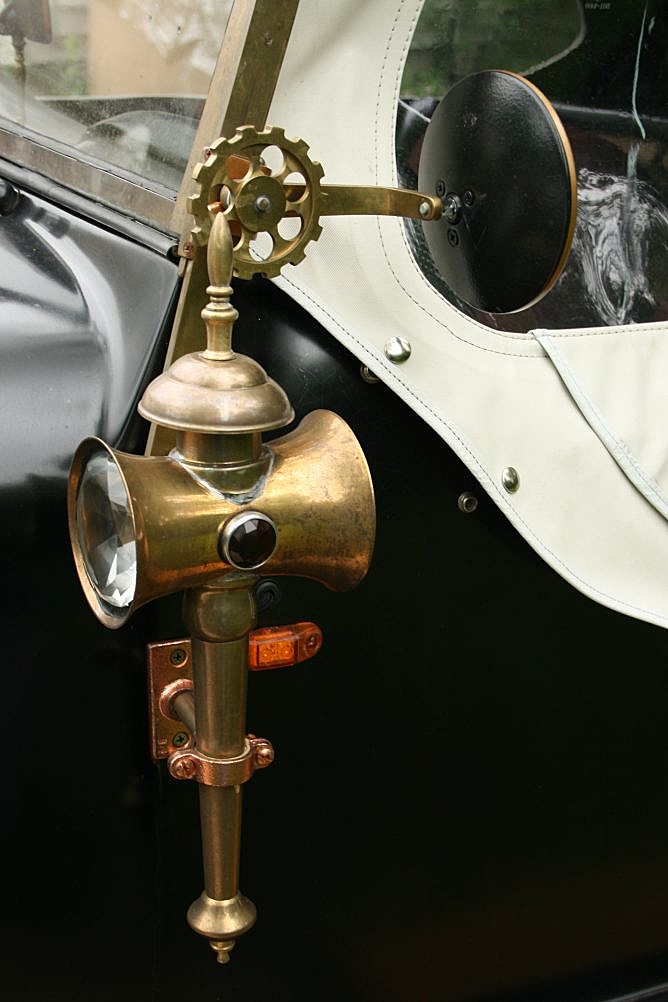
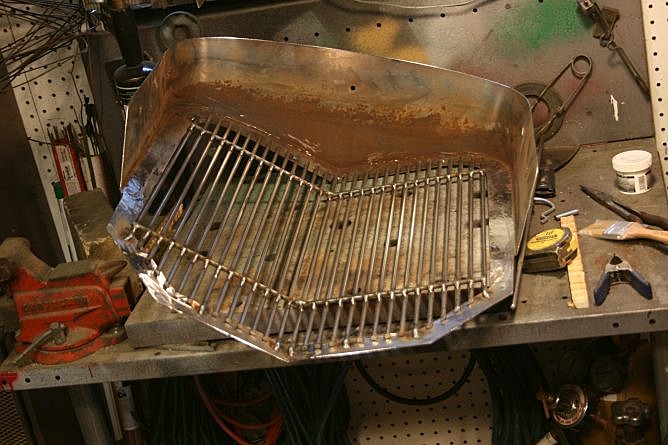
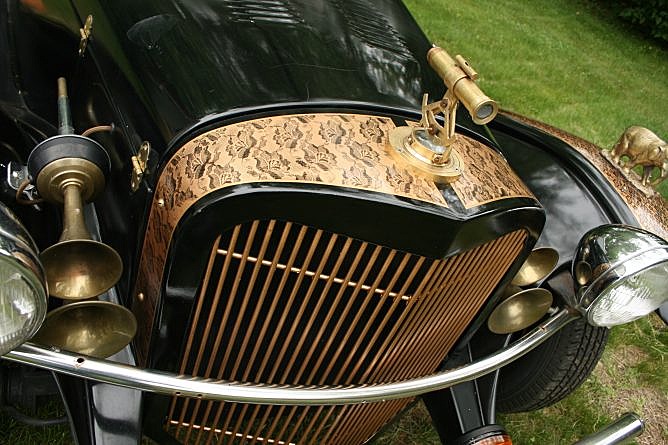
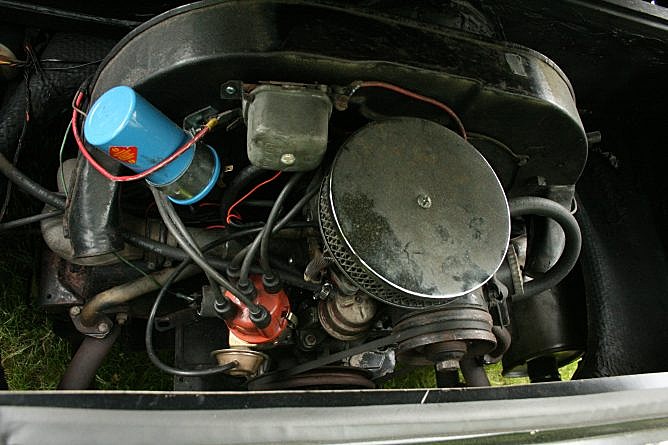
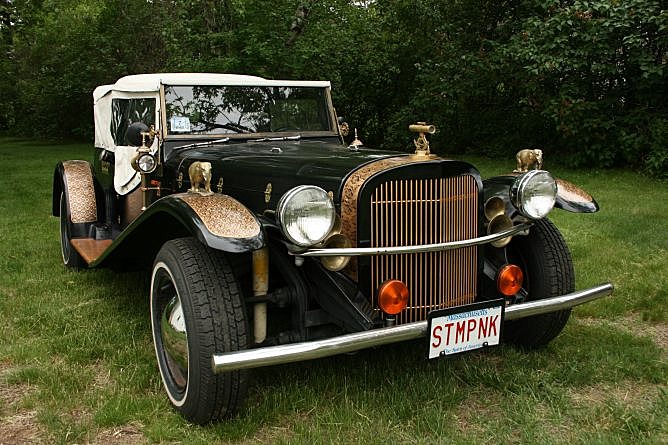
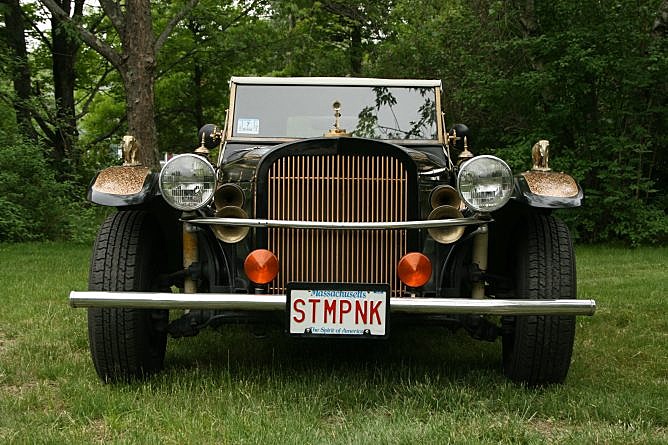
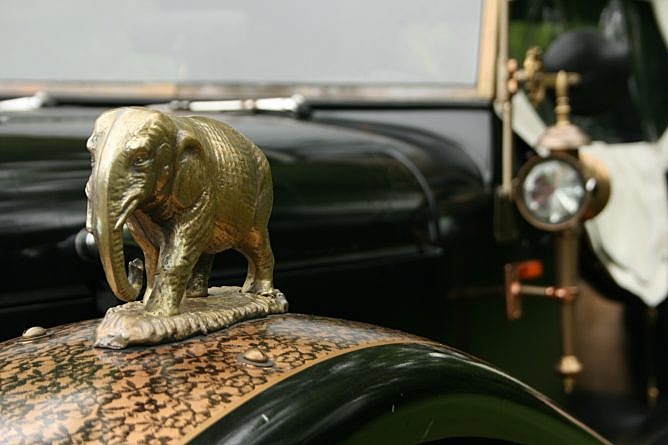
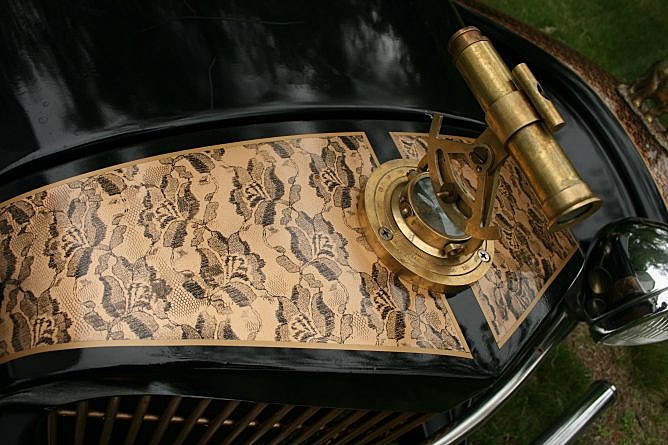
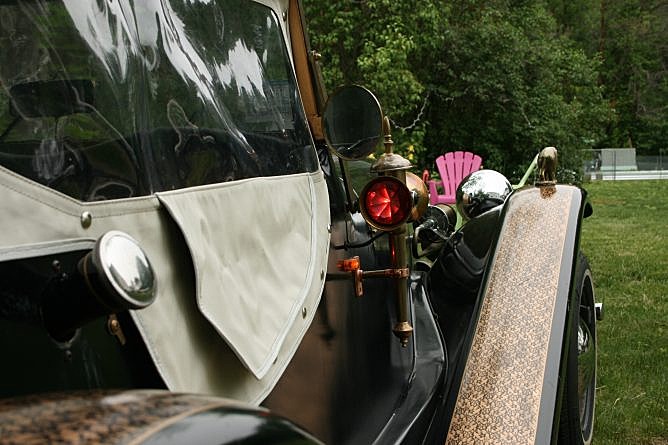
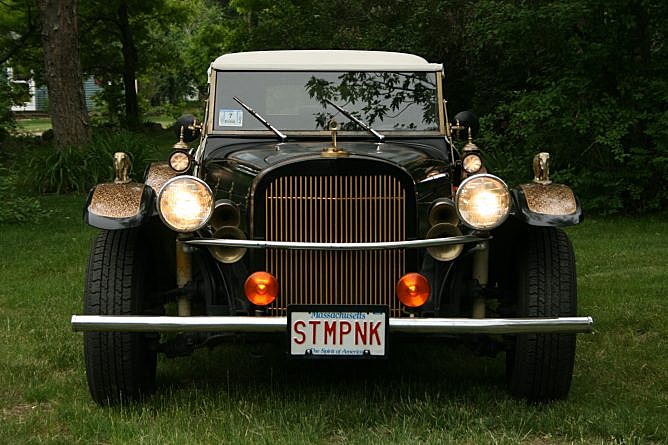
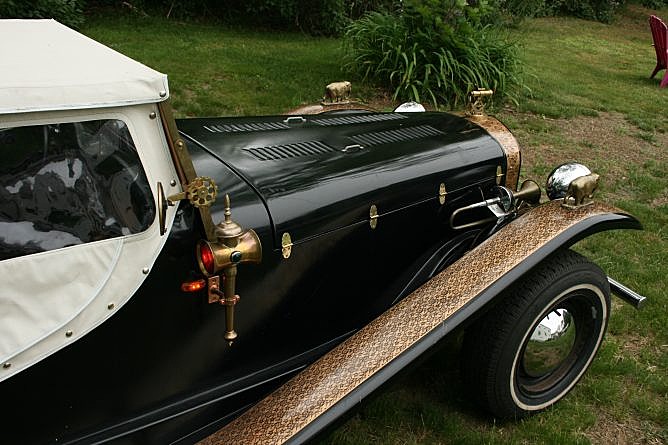
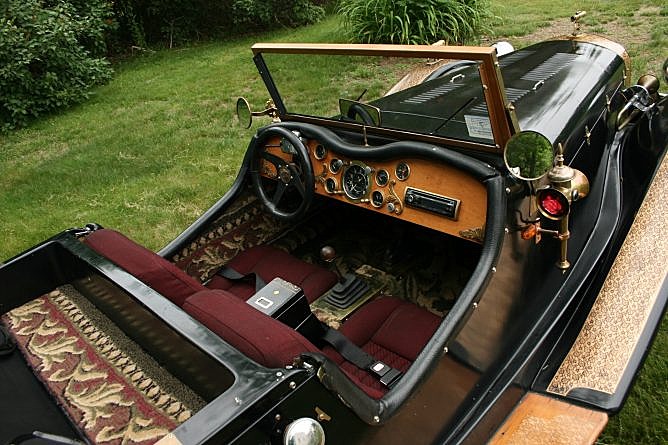
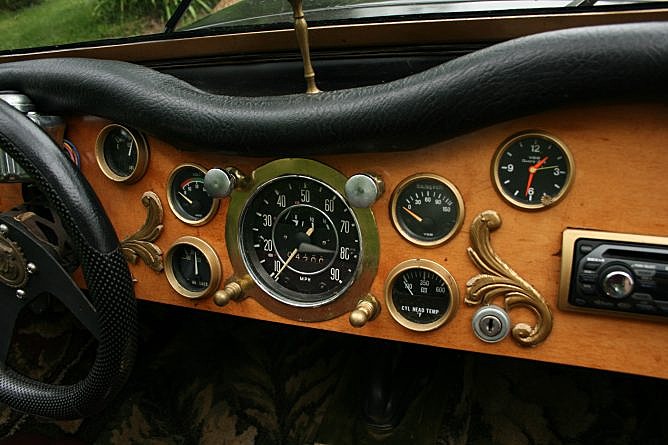
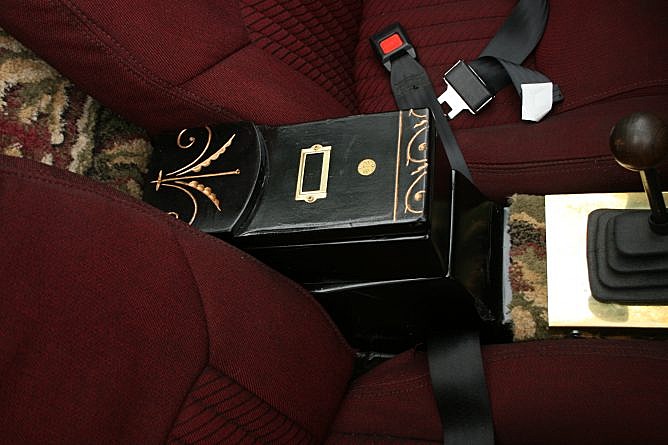
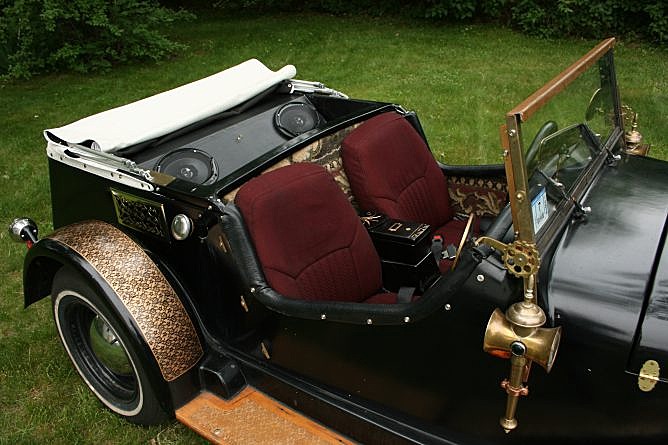
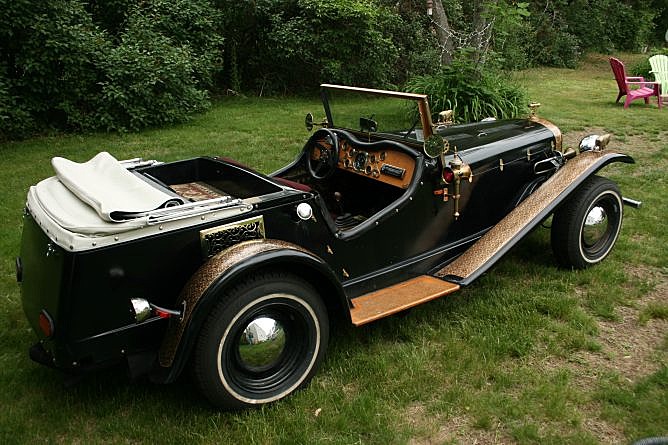
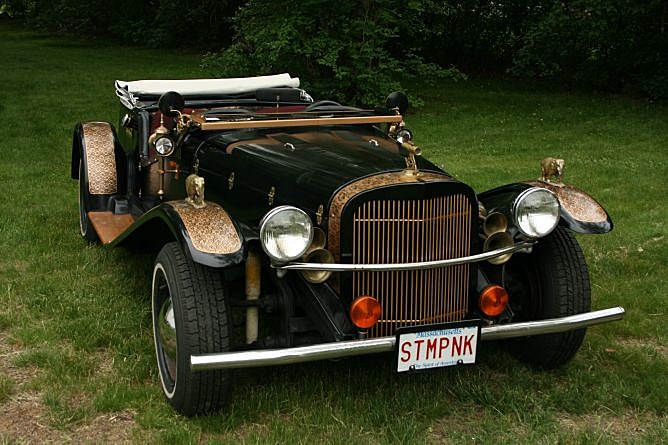

If you want fully automated “easy driving” steam cars, (like a Doble) yea, that can take a while. If you are willing to go with a more hands on approach, you can get a basic conversion done surprisingly quickly…. http://www.the-nerds.org/Steam-Car-Day.html